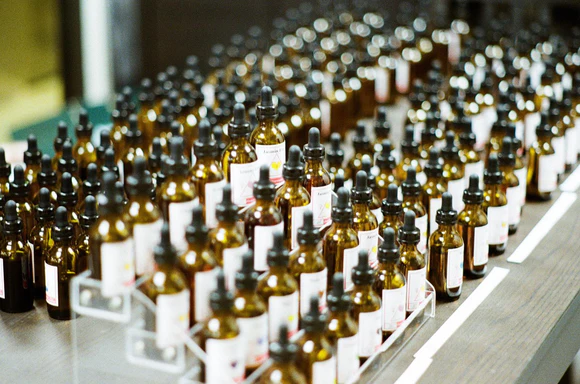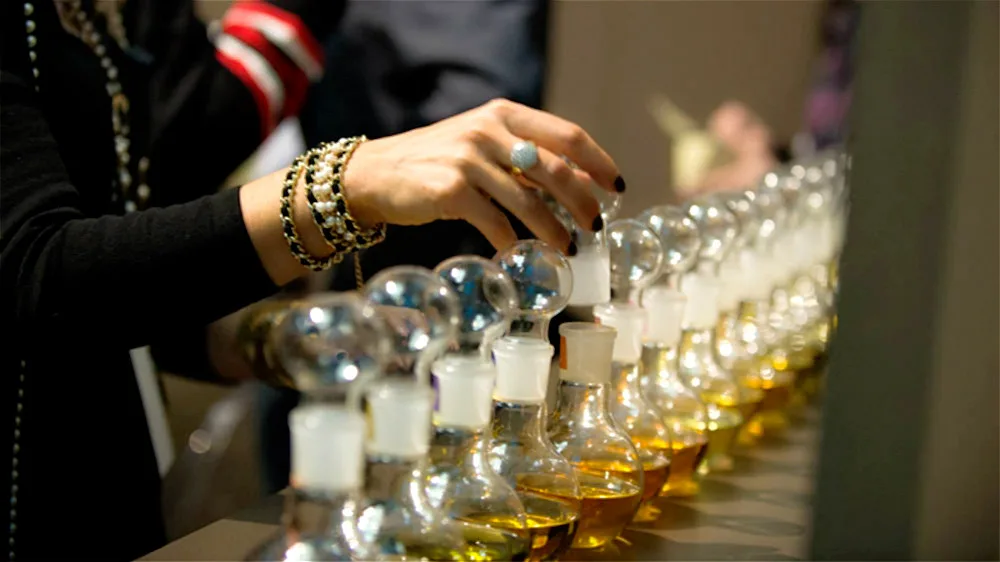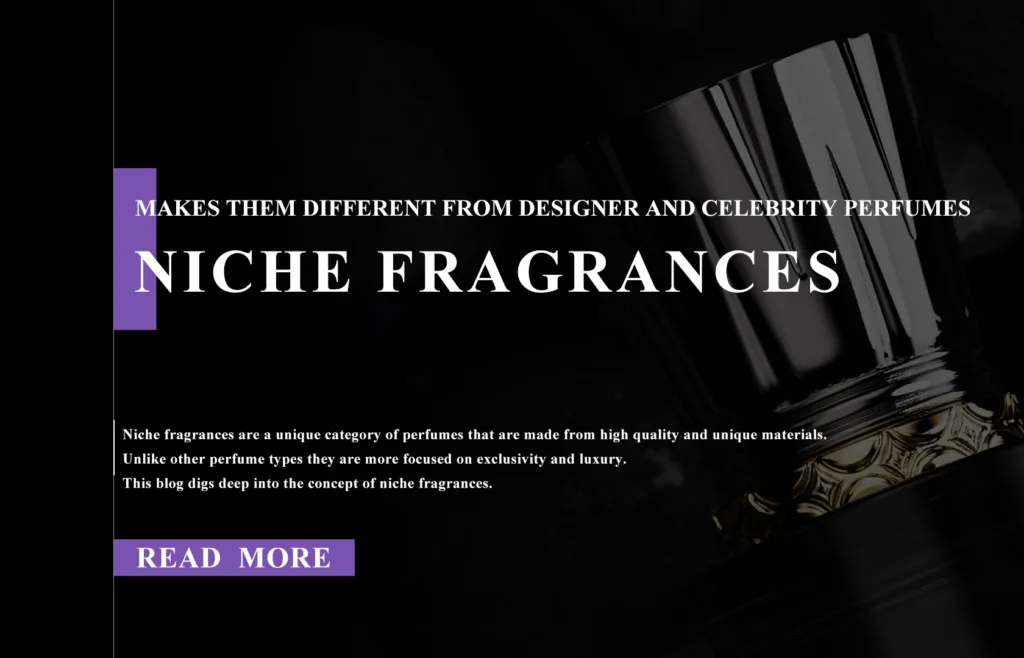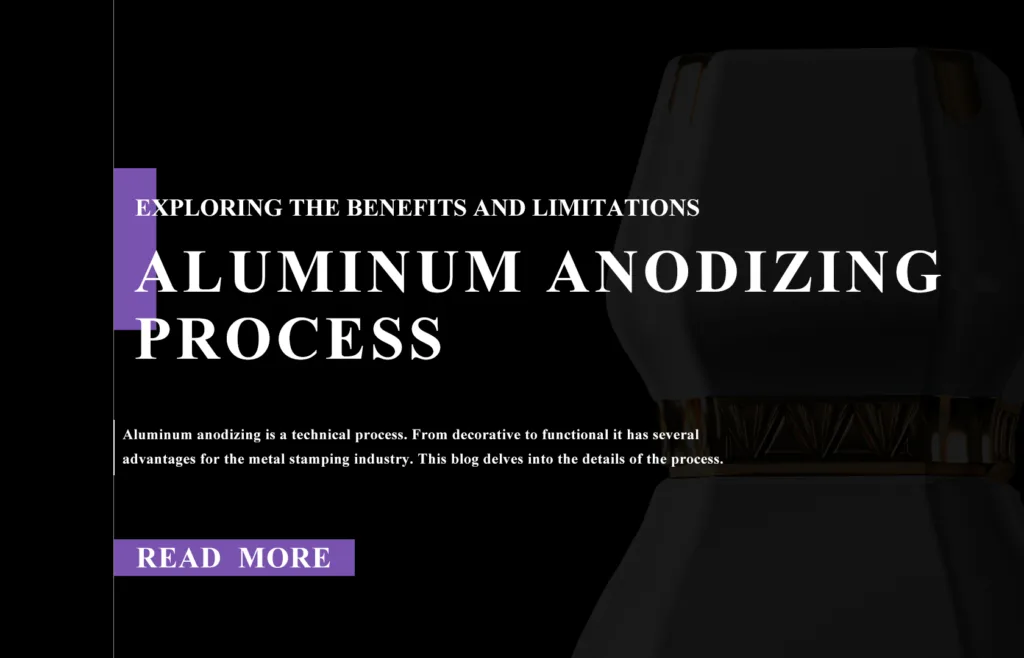Perfume has a deep-rooted history. The ancient perfume types were all natural. The perfume industry was revolutionized with the advancement in technology and increased demand.
Synthetic complex molecules replaced natural ingredients. This led to the creation of two perfume types, i.e., natural fragrance/perfumes and synthetic fragrance/perfumes.
This blog highlights the salient features of both types of perfumes. It also answers the most debatable questions:
What to choose between a natural fragrance and a synthetic fragrance?
Let’s read further to know the answer.
WHAT IS A NATURAL FRAGRANCE
As the name implies, natural fragrance consists of natural raw materials. Natural perfumes or natural fragrances are made of raw materials of a hundred percent natural origin. These raw materials are extracted from various sources. These sources include:
- Essential oils
- Distillates
- Oleoresins
- Isolates
- Fractions
The above sources derive from natural elements such as trees, plants, and flowers. The natural fragrance gives a soft, beautiful scent. It is free from harmful synthetic phthalates.
Natural fragrances take their inspiration from nature. Natural fragrances are popular among people who prefer organic and nature-inspired products.
TYPES OF NATURAL PERFUMES
Types of natural perfumes depend upon the source from which they are derived. However, below are some of the kinds of natural perfumes based on their source:
Jasmine
Jasmine is a flower. It has a strong aroma. That is why it is used in small quantities. Jasmine counts among the most expensive of perfumes. The reason is the quantity of flowers used in its preparation.
It requires kilos and kilos of the flower to extract the natural oil from it. This natural oil is then used in the preparation of perfume.
Sandalwood
Sandalwood has a warm and earthy scent. The source of this natural fragrance is sandalwood. Sandal is extracted from the bark and roots of the sandal tree.
The creamy and subtle feel it provides makes it distinctive and exclusive for its use in winter.
Rose
As the name suggests, the rose fragrance is derived from the petals of rose flowers. The essential oil derived from rose petals is the most expensive ingredient of this natural perfume. It has a sweet and, of course, floral aroma.
Patchouli
Among the various types of natural perfumes, the patchouli fragrance is distinct. It is because it is derived from a herb. Earthy, sweet, and slightly spicy are the adjectives that describe this natural fragrance.
The original smell of patchouli is very strong. Instead of being the basic ingredients, it is sometimes used to give depth and richness to perfumes.
Bergamot
Bergamot is a citrus fruit. It has a fruity, acidic, and fresh scent. Unlike many perfume types, the bergamot scent is not inclined toward any specific gender. It is considered to be a natural unisex perfume.
Other Perfume types
Natural perfume types are classified based on their aromas, and This is a general classification. For example:
- Aquatic fragrances are those that give the feeling of being in the ocean or on a beach. Their basic ingredients are seaweed, salt, and melon.
- Amaderado perfumes are those that are derived from different types of wood. Sandalwood, cedar, and pine are among various such examples.
- Citric perfumes have citrus fruits as their basic derivative source.
- Oriental fragrances are those that have a blend of spice in them. Their distinct aroma is due to unique ingredients such as vanilla, cloves, cinnamon, patchouli, etc.

BENEFITS OF USING NATURAL FRAGRANCE
Natural fragrances are considered a better choice among perfume types because they have many benefits. Apart from being made from natural ingredients, they have several other advantages. Let’s have a look at some of them:
No Skin Irritations
Some people have extra sensitive skin types. These people are prone to experiencing skin irritations when they use perfumes with synthetic ingredients. Natural perfume types are safer in this regard. The use of only natural ingredients does not cause any skin allergies or irritations.
Healing Properties
Natural perfumes contain natural essential oils. Essential oils have therapeutic and healing properties. The sweet aromatic scents have a pleasing effect on the mind and cause the mind and body relaxation.
No Synthetic Chemicals
As discussed before, natural perfumes are made from all-natural raw materials. They do not contain any synthetic chemicals or artificial ingredients.
The intensity of the scent depends upon the quantity of natural ingredients used. These are free from pesticides and toxins as well.
Not harming animals
Synthetic perfumes usually involve animal testing. Animal testing is a serious threat to animals. Natural perfume types do not include animal testing. Therefore, they are considered to be more environmentally friendly.
WHAT IS A SYNTHETIC FRAGRANCE
Synthetic fragrances are made from synthetic chemicals. These chemicals, when used in fragrance, are called fragrance ingredients.
The basic purpose behind the creation of synthetic fragrances is to meet the ever-increasing demand for perfumes in the market. Since just natural fragrance would not be enough to meet the demand, it would also cause a threat to the natural environment.
Synthetic fragrances are made from complex chemical compounds. The source of these chemical compounds is aromatic raw materials.
These raw materials can either be hundred percent synthetic in nature or a combination of both artificial and natural raw materials.

TYPES OF SYNTHETIC FRAGRANCE
The classification of synthetic fragrances is divided into three basic types, which are as follows:
- Natural Isolates
Since the name has the term “natural” in it, it combines natural by-products and synthetic elements.
- Semi synthetics
Semi-synthetic perfume types are made from molecules that are modified by intention.
- Full synthetics
As the name suggests, these perfume types are all synthetic in nature. Almost all of the fragrance is made from petroleum by-products.
WHY USE A SYNTHETIC FRAGRANCE?
Despite being made from synthetic materials, synthetic fragrances have many benefits that make them suitable. Let’s have a look at each of them.
Less Burden on Nature
As discussed before, the increase in the demand for perfume cannot be met with all-natural perfume alone.
Therefore, synthetic fragrances lessen the burden on harvesters and farmers to meet the production demand for herbs, trees, plants, and other natural elements.
Some essential oils used in natural fragrances are also extracted from animals. Therefore, the use of synthetic ingredients protects the natural sources from over-exploitation.
Increased Shelf Life
Many manufacturers and consumers prefer synthetic fragrances because of their increased shelf life. Natural ingredients have a high rate of volatility. Artificial ingredients are more long-lasting.
They have a longer shelf life. The reason is the addition of fixatives in synthetic fragrances. Fixatives decrease the rate of evaporation of fragrance. Therefore, these fragrances last longer.
Huge Variety
The laws of nature do not bind synthetic fragrances. They are not bound to seasons or environmental conditions. Artificial fragrances are made in laboratory conditions. Laboratory conditions can be controlled according to will.
Therefore, combining various chemical ingredients opens a whole new spectrum of scents and fragrances. This results in a huge variety of synthetic fragrances.
Manufacturers can do endless tests and create various fragrances with endless compositions.
Cost-effective
Synthetic materials are easy to source and purchase. When used in synthetic fragrances, these artificial materials also reduce their manufacturing cost.
This makes synthetic fragrances cost-effective perfume types. However, the price can vary depending on the quality and type of chemicals used.
DIFFERENCE BETWEEN NATURAL AND SYNTHETIC PERFUME TYPES
| NATURAL FRAGRANCE | SYNTHETIC FRAGRANCE | |
| INGREDIENTS | Natural fragrance is made from all-natural ingredients. These ingredients are derived from plants, flowers, fruits, trees, etc. | Synthetic fragrance contains complex synthetic molecules. These synthetic molecules are derived from chemicals produced in lab-controlled environments. |
| LONGEVITY | The longevity of natural perfumes is less than that of synthetic fragrances, which are more volatile. They do not contain any fixatives. | Synthetic fragrances are more long-lasting. They have fixatives that make them last longer. |
| VARIETY | Natural fragrances have a limited spectrum of scents. The natural ingredients are limited to flowers, wood, fruits, and herbs. Even after combinations, there is not much variety. | Synthetic fragrances have a huge variety. Since the chemicals are created in a laboratory, the manufacturer can test combinations that go along with each other. |
| ENVIRONMENTAL IMPACTS | These perfume types do not contain any hazardous elements to the environment. However, care should be taken to avoid over-exploitation of natural resources. | Synthetic fragrances contain many elements that might be hazardous to the environment, such as alcohol. Manufacturers should prefer biodegradable ingredients. |
| CONSUMER COST | The extraction process of natural ingredients is time-consuming and expensive. Therefore, the price tag of natural fragrances is higher than that of fragrances. | The consumer cost of synthetic fragrance is less than that of natural fragrance. The chemicals used in these are easy to source. They are also not very pricey. |
CONCLUSION
Both natural and synthetic perfume types are essential to the perfumery industry. The selection between the two depends upon consumer preferences.
Natural fragrance is a better choice for consumers with no price preference and who are more inclined to go toward natural and vegan sources. For consumers who have a limited budget and prefer a variety of scents, the synthetic fragrance is a better choice.
Both perfume types have their benefits and limitations. The choice is entirely yours.



